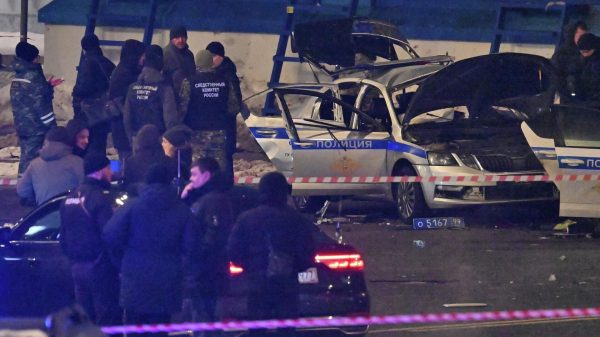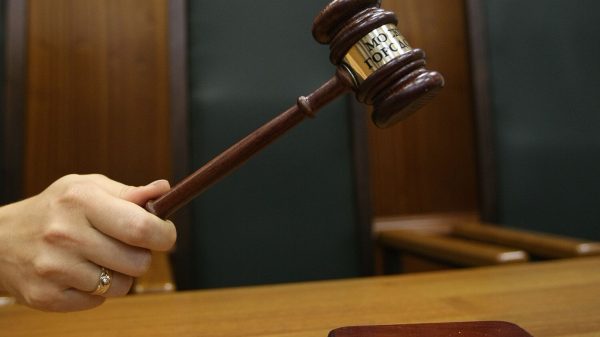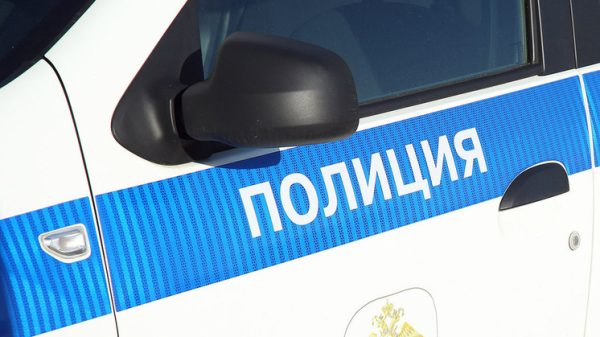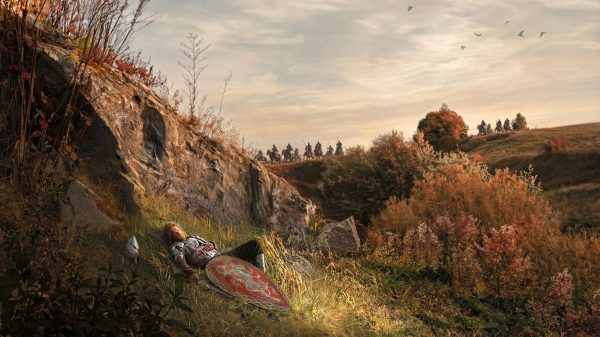Boris Johnson has famously not always seemed on top of the ever-changing coronavirus lockdown rules, but on Friday made perhaps his most basic error so far, by suggesting that new restrictions mean separated parents might not be able to see their children.
Responding to a question at a televised Downing Street press conference, the prime minister said that while people should check the rules, “alas”, some parents might face restrictions on seeing children.
This is not only incorrect, but has been so throughout Covid restrictions, with children allowed to move between the homes of separated parents even during the peak of lockdown in March.
Quick guide What are the three tiers of England’s Covid lockdown system?
Show
Hide
Tier one – medium
- The “rule of six” applies, meaning socialising in groups larger than six people is prohibited whether indoors or outdoors.
- Tradespeople can continue to go into a household for work and are not counted as being part of the six-person limit.
- Businesses and venues can continue to operate but pubs and restaurants must ensure customers only consume food and drink while seated, and close between 10pm and 5am.
- Takeaway food can continue to be sold after 10pm if ordered by phone or online.
- Schools and universities remain open.
- Places of worship remain open but people must not mingle in a group of more than six.
- Weddings and funerals can go ahead with restrictions on the number of people who can attend (15 and 30 respectively).
- Exercise classes and organised sport can continue to take place outdoors, and – if the rule of six is followed – indoors.
Tier two – high
- People are prohibited from socialising with anybody outside their household or support bubble in any indoor setting.
- Tradespeople can continue to go into a household for work.
- The rule of six continues to apply for socialising outdoors, for instance in a garden or public space like a park or beach.
- Businesses and venues can continue to operate but pubs and restaurants must ensure customers only consume food and drink while seated, and close between 10pm and 5am.
- Takeaway food can continue to be sold after 10pm if ordered online or by phone.
- Schools and universities remain open.
- Places of worship remain open but people must not mingle in a group of more than six.
- Weddings and funerals can go ahead with restrictions on the number of people who can attend (15 and 30 respectively).
- Exercise classes and organised sport can continue to take place outdoors but will only be permitted indoors if it is possible for people to avoid mixing with those they do not live with (or share a support bubble with), or for youth or disability sport.
- Travel is permitted to amenities that are open, for work or to access education, but people are advised to reduce the number of journeys where possible.
Tier three – very high
- People are prohibited from socialising with anybody they do not live with, or have not formed a support bubble with, in any indoor setting, private garden or at most outdoor hospitality venues and ticketed events.
- Tradespeople can continue to go into a household for work.
- The rule of six continues to apply to outdoor public spaces, such as parks, beaches, public gardens or sports venues.
- Pubs and bars are only permitted to remain open to operate as restaurants, in which case alcohol can only be served as part of a substantial meal.
- Schools and universities remain open.
- Places of worship remain open but household mixing is not permitted.
- Weddings and funerals can go ahead with restrictions on the number of people attending (15 and 30 respectively) but wedding receptions are not allowed.
- The rules for exercise classes and organised sport are the same as in tier 2. They can continue to take place outdoors but will only be permitted indoors if it is possible for people to avoid mixing with people they do not live with (or share a support bubble with), or for youth or disability sport. However, in Merseyside, gyms were ordered to close when it entered tier 3.
- Travelling outside a very high alert level area or entering a very high alert level area should be avoided other than for things such as work, education or youth services, to meet caring responsibilities or if travelling through as part of a longer journey.
- Residents of a tier 3 area should avoid staying overnight in another part of the UK, while people who live in a tier 1 or tier 2 area should avoid staying overnight in a very high alert level area.
Photograph: Peter Byrne/PA
Was this helpful?
Thank you for your feedback.
The question came in a video from a parent called Christopher in Margate, Kent, which is currently in the lowest of the three-tier system for Covid regulations.
Christopher’s query was whether he might encounter problems in seeing his son, who lives in Essex, almost all of which will be moved into the middle tier on Friday night.
“You should go on the website, obviously, and check, but when places go into a higher tier from the basic medium, then there are restrictions on household contact, alas,” Johnson said. “So, depending on how you define your household, you may find there are restrictions.”
This is not correct. A briefing by the House of Commons library about the new rules notes that the latest, issued on Wednesday, state that in all three tiers, restrictions of meetings do not apply “for the purposes of arrangements for access to, and contact between, parents and children where the children do not live in the same household as their parents or one of their parents”.
A Downing Street spokesman confirmed that there was “an exemption for any kind of childcare for separated parents in all tiers”, adding: “The point the PM made is you need to check the website because you’ll know how you define your household.”
Johnson has struggled on Covid rules several times in the past. Last month he apologised for having “misspoken” after wrongly suggesting that the “rule of six” limit on public gatherings did not apply outdoors in north-east England.





















































Свежие комментарии